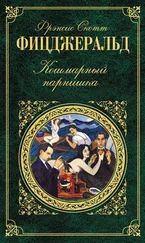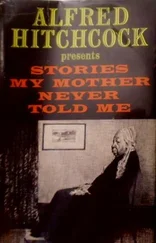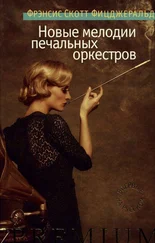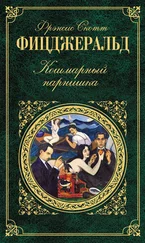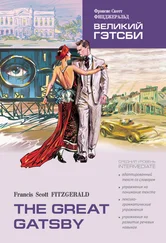Фрэнсис Фицджеральд - This Side of Paradise
Здесь есть возможность читать онлайн «Фрэнсис Фицджеральд - This Side of Paradise» — ознакомительный отрывок электронной книги совершенно бесплатно, а после прочтения отрывка купить полную версию. В некоторых случаях можно слушать аудио, скачать через торрент в формате fb2 и присутствует краткое содержание. Год выпуска: 2014, Издательство: epubBooks Classics, Жанр: Классическая проза, на английском языке. Описание произведения, (предисловие) а так же отзывы посетителей доступны на портале библиотеки ЛибКат.
- Название:This Side of Paradise
- Автор:
- Издательство:epubBooks Classics
- Жанр:
- Год:2014
- ISBN:нет данных
- Рейтинг книги:5 / 5. Голосов: 1
-
Избранное:Добавить в избранное
- Отзывы:
-
Ваша оценка:
- 100
- 1
- 2
- 3
- 4
- 5
This Side of Paradise: краткое содержание, описание и аннотация
Предлагаем к чтению аннотацию, описание, краткое содержание или предисловие (зависит от того, что написал сам автор книги «This Side of Paradise»). Если вы не нашли необходимую информацию о книге — напишите в комментариях, мы постараемся отыскать её.
This Side of Paradise — читать онлайн ознакомительный отрывок
Ниже представлен текст книги, разбитый по страницам. Система сохранения места последней прочитанной страницы, позволяет с удобством читать онлайн бесплатно книгу «This Side of Paradise», без необходимости каждый раз заново искать на чём Вы остановились. Поставьте закладку, и сможете в любой момент перейти на страницу, на которой закончили чтение.
Интервал:
Закладка:
With affectionate regards, THAYER DARCY.
Even Amory's reading paled during this period; he delved further into the misty side streets of literature: Huysmans, Walter Pater, Theophile Gautier, and the racier sections of Rabelais, Boccaccio, Petronius, and Suetonius. One week, through general curiosity, he inspected the private libraries of his classmates and found Sloane's as typical as any: sets of Kipling, O. Henry, John Fox, Jr., and Richard Harding Davis; "What Every Middle–Aged Woman Ought to Know," "The Spell of the Yukon"; a "gift" copy of James Whitcomb Riley, an assortment of battered, annotated schoolbooks, and, finally, to his surprise, one of his own late discoveries, the collected poems of Rupert Brooke.
Together with Tom D'Invilliers, he sought among the lights of Princeton for some one who might found the Great American Poetic Tradition.
The undergraduate body itself was rather more interesting that year than had been the entirely Philistine Princeton of two years before. Things had livened surprisingly, though at the sacrifice of much of the spontaneous charm of freshman year. In the old Princeton they would never have discovered Tanaduke Wylie. Tanaduke was a sophomore, with tremendous ears and a way of saying, "The earth swirls down through the ominous moons of preconsidered generations!" that made them vaguely wonder why it did not sound quite clear, but never question that it was the utterance of a supersoul. At least so Tom and Amory took him. They told him in all earnestness that he had a mind like Shelley's, and featured his ultrafree free verse and prose poetry in the Nassau Literary Magazine. But Tanaduke's genius absorbed the many colors of the age, and he took to the Bohemian life, to their great disappointment. He talked of Greenwich Village now instead of "noon–swirled moons," and met winter muses, unacademic, and cloistered by Forty–second Street and Broadway, instead of the Shelleyan dream–children with whom he had regaled their expectant appreciation. So they surrendered Tanaduke to the futurists, deciding that he and his flaming ties would do better there. Tom gave him the final advice that he should stop writing for two years and read the complete works of Alexander Pope four times, but on Amory's suggestion that Pope for Tanaduke was like foot–ease for stomach trouble, they withdrew in laughter, and called it a coin's toss whether this genius was too big or too petty for them.
Amory rather scornfully avoided the popular professors who dispensed easy epigrams and thimblefuls of Chartreuse to groups of admirers every night. He was disappointed, too, at the air of general uncertainty on every subject that seemed linked with the pedantic temperament; his opinions took shape in a miniature satire called "In a Lecture–Room," which he persuaded Tom to print in the Nassau Lit.
"Good–morning, Fool…
Three times a week
You hold us helpless while you speak,
Teasing our thirsty souls with the
Sleek 'yeas' of your philosophy…
Well, here we are, your hundred sheep,
Tune up, play on, pour forth…we sleep…
You are a student, so they say;
You hammered out the other day
A syllabus, from what we know
Of some forgotten folio;
You'd sniffled through an era's must,
Filling your nostrils up with dust,
And then, arising from your knees,
Published, in one gigantic sneeze…
But here's a neighbor on my right,
An Eager Ass, considered bright;
Asker of questions…. How he'll stand,
With earnest air and fidgy hand,
After this hour, telling you
He sat all night and burrowed through
Your book…. Oh, you'll be coy and he
Will simulate precosity,
And pedants both, you'll smile and smirk,
And leer, and hasten back to work….
'Twas this day week, sir, you returned
A theme of mine, from which I learned
(Through various comment on the side
Which you had scrawled) that I defied
The
highest rules of criticism
For
cheap
and
careless
witticism….
'Are you quite sure that this could be?'
And
'Shaw is no authority!'
But Eager Ass, with what he's sent,
Plays havoc with your best per cent.
Still—still I meet you here and there…
When Shakespeare's played you hold a chair,
And some defunct, moth–eaten star
Enchants the mental prig you are…
A radical comes down and shocks
The atheistic orthodox?
You're representing Common Sense,
Mouth open, in the audience.
And, sometimes, even chapel lures
That conscious tolerance of yours,
That broad and beaming view of truth
(Including Kant and General Booth…)
And so from shock to shock you live,
A hollow, pale affirmative…
The hour's up…and roused from rest
One hundred children of the blest
Cheat you a word or two with feet
That down the noisy aisle–ways beat…
Forget on
narrow–minded earth
The Mighty Yawn that gave you birth."
In April, Kerry Holiday left college and sailed for France to enroll in the Lafayette Esquadrille. Amory's envy and admiration of this step was drowned in an experience of his own to which he never succeeded in giving an appropriate value, but which, nevertheless, haunted him for three years afterward.
*****
THE DEVIL
Healy's they left at twelve and taxied to Bistolary's. There were Axia Marlowe and Phoebe Column, from the Summer Garden show, Fred Sloane and Amory. The evening was so very young that they felt ridiculous with surplus energy, and burst into the cafe like Dionysian revellers.
"Table for four in the middle of the floor," yelled Phoebe. "Hurry, old dear, tell 'em we're here!"
"Tell 'em to play 'Admiration'!" shouted Sloane. "You two order; Phoebe and I are going to shake a wicked calf," and they sailed off in the muddled crowd. Axia and Amory, acquaintances of an hour, jostled behind a waiter to a table at a point of vantage; there they took seats and watched.
"There's Findle Margotson, from New Haven!" she cried above the uproar. "'Lo, Findle! Whoo–ee!"
"Oh, Axia!" he shouted in salutation. "C'mon over to our table." "No!" Amory whispered.
"Can't do it, Findle; I'm with somebody else! Call me up to–morrow about one o'clock!"
Findle, a nondescript man–about–Bisty's, answered incoherently and turned back to the brilliant blonde whom he was endeavoring to steer around the room.
"There's a natural damn fool," commented Amory.
"Oh, he's all right. Here's the old jitney waiter. If you ask me, I want a double Daiquiri."
"Make it four."
The crowd whirled and changed and shifted. They were mostly from the colleges, with a scattering of the male refuse of Broadway, and women of two types, the higher of which was the chorus girl. On the whole it was a typical crowd, and their party as typical as any. About three–fourths of the whole business was for effect and therefore harmless, ended at the door of the cafe, soon enough for the five–o'clock train back to Yale or Princeton; about one–fourth continued on into the dimmer hours and gathered strange dust from strange places. Their party was scheduled to be one of the harmless kind. Fred Sloane and Phoebe Column were old friends; Axia and Amory new ones. But strange things are prepared even in the dead of night, and the unusual, which lurks least in the cafe, home of the prosaic and inevitable, was preparing to spoil for him the waning romance of Broadway. The way it took was so inexpressibly terrible, so unbelievable, that afterward he never thought of it as experience; but it was a scene from a misty tragedy, played far behind the veil, and that it meant something definite he knew.
Читать дальшеИнтервал:
Закладка:
Похожие книги на «This Side of Paradise»
Представляем Вашему вниманию похожие книги на «This Side of Paradise» списком для выбора. Мы отобрали схожую по названию и смыслу литературу в надежде предоставить читателям больше вариантов отыскать новые, интересные, ещё непрочитанные произведения.
Обсуждение, отзывы о книге «This Side of Paradise» и просто собственные мнения читателей. Оставьте ваши комментарии, напишите, что Вы думаете о произведении, его смысле или главных героях. Укажите что конкретно понравилось, а что нет, и почему Вы так считаете.

![Фрэнсис Фицджеральд - Сумасшедшее воскресенье [сборник]](/books/28225/frensis-ficdzherald-sumasshedshee-voskresene-sborn-thumb.webp)
